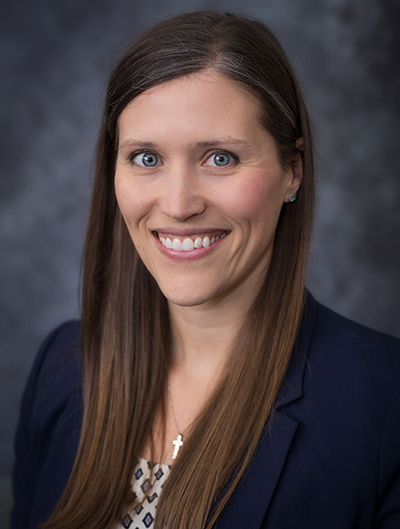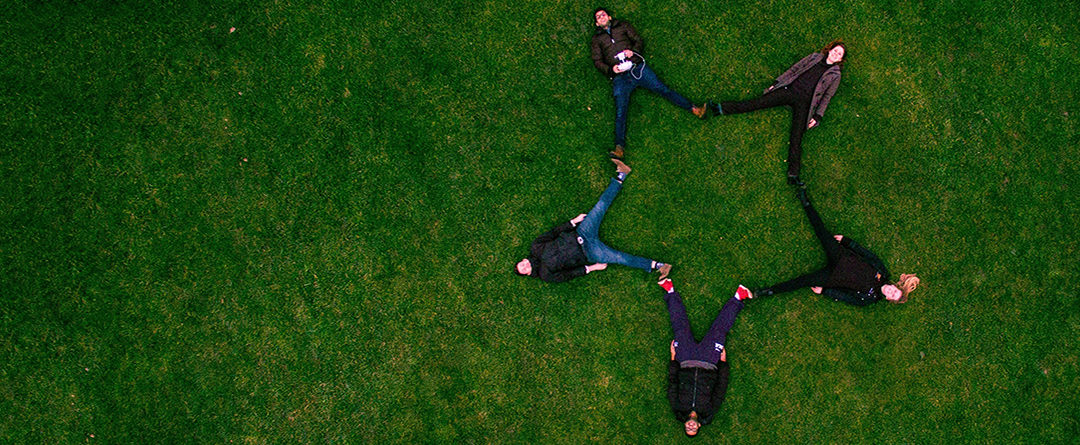by Andrea Westby
I’ve never enjoyed small talk. The idea of trying to hold a conversation with someone about paint colors, the weather or the best types of kids’ toys makes me anxious. It’s not that I don’t love people, but I find surface-level conversations so draining that I avoid them.
As a doctor, I am accustomed to immediate intimacy. Patients often share their life stories at our first visit, from their “embarrassing” physical concerns to deeply personal family issues.
But I’ve found that cultivating authentic reciprocal relationships outside the office isn’t so easy. Dinner parties aren’t really the place to discuss childhood trauma or relationship issues. For people like me, it requires years to build enough trust to be able to share details like these. However, I believe that it’s nearly impossible to completely engage with another without sharing our “stuff.”
Authenticity in church
I mentor an eighth-grade girls’ confirmation group. This past year, one of our topics is authenticity within the church and in our relationships. We spoke about bringing our truths and wrestling with hard questions together. We also discussed honesty and vulnerability, and how frequently we church members only reveal our best selves, instead of admitting and sharing our struggles and imperfections. It is my opinion that we must bring our whole selves into relationship and community, or we never fully know each other.
The thing is, if we’re truly honest with ourselves, we all have “stuff.”
The church should be an obvious place to share it, as threads of love, kindness and acceptance are woven throughout the gospel, and with God’s help, we Christians try to live these values in the world. However, we human beings are also really good at drawing lines of inclusion and exclusion between worthy and unworthy.
Community helps makes us healthy
Community is important for us emotionally and spiritually, but also physically. There is plenty of research showing the importance of community and connectedness in health and wellness, including studies that show that loneliness and isolation in seniors lead to serious health problems.
In the book The Blue Zones, which examines the lifestyles of communities across the globe that are most associated with long and active lives, author Dan Buechner finds that having a connected purpose is key. We are meant to be in community. And unfortunately, an online community doesn’t seem to count in the same measurable way.
After my medical training, I moved to a small town in northern Minnesota to begin my practice. I thought it would be easy to feel at home; I mean, my home town is just down the road. I’m “from here,” so I should be easily accepted, right?
I started a Café group. To encourage women to host, our only rules were that no one should feel pressure to provide food or to clean their house before our get-togethers.
Real life set in, and it wasn’t that easy. I longed for friends – real, true friends I could call and talk for hours, friends whose shoulder I could cry on when I had a hard day, who could make me laugh at myself when I was being ridiculous. And for a while, I didn’t have anyone like that here. I had some acquaintances, people I could have dinner with or go for a run with, but we didn’t get much deeper than that.
As a young professional woman, I felt an expectation from others (along with my own self-made pressure) to be more independent, and to be a better doctor than everyone else (mostly men). And, as I sought to establish myself in this small town, I felt the need to project that image of steely independence and competence in all aspects of my life. It was incredibly isolating.
But I’ve found that to get others to open up, sometimes we have to go first. And always, we need to be willing to accept the shortcomings and missteps of others as they learn to forgive and love ours.
I started talking to other young women in my town who also felt that they needed somewhere to belong, and with their encouragement, I started a Café group. To encourage women to host, our only rules were that no one should feel pressure to provide food or to clean their house before our get-togethers.
 In our gatherings, I made a point of allowing myself to be vulnerable and speak about my perfectionism, negativity and addictive personality, as well as my unrelenting belief that this world can be a more wholesome, welcoming place, and my unwillingness to accept anything less than that. And the women in the group didn’t walk away from me or our community, despite their knowledge of this and me. The truest relationships have remained and enriched my life in a way that I never could have imagined.
In our gatherings, I made a point of allowing myself to be vulnerable and speak about my perfectionism, negativity and addictive personality, as well as my unrelenting belief that this world can be a more wholesome, welcoming place, and my unwillingness to accept anything less than that. And the women in the group didn’t walk away from me or our community, despite their knowledge of this and me. The truest relationships have remained and enriched my life in a way that I never could have imagined.
True community acknowledges that each of us has a place and a purpose in the world, an inherent value not based on performance, and that each of us has challenges. We give one another the space to live into their vocations while holding each other up in our struggles. Some days, I may not have the strength to sing the hymns, but the voices of those around me carry me along and give me hope for the future. Next Sunday, I may return the favor.
Closing prayer:
Mother God, we have isolated ourselves from each other and the natural world. We know that we need to live in intersectional and inclusive community in order that we, all of humanity, and the earth can truly thrive. But we often do not know the way, or we turn from each other and the environment. Open our hearts and minds to each other, help us to connect in meaningful ways with even those from whom we differ, and create authentic community available to all. In Your name we pray, Amen.
Discussion Questions:
- Have you experienced authentic community? What was it like for you? In what ways have you brought that experience into other relationships or communities?
- What is one way that you can nurture or invite authentic community into your life?
- Has your experience of the church been that of nurturing community? If not, how do you envision it could be?
 Andrea Westby is a family physician who currently is a teacher of family medicine in the University of Minnesota’s North Memorial Family Medicine Residency, caring for the urban underserved in North Minneapolis. She is passionate about promoting health, wellness, wholeness, justice, and equality in all spheres of life: healthcare, the church, globally. If she wasn’t a doctor, she probably would have been a Lutheran pastor. She enjoys reading, food, being physically active, and spending time with her husband and “fur babies” Maeby and George Michael.
Andrea Westby is a family physician who currently is a teacher of family medicine in the University of Minnesota’s North Memorial Family Medicine Residency, caring for the urban underserved in North Minneapolis. She is passionate about promoting health, wellness, wholeness, justice, and equality in all spheres of life: healthcare, the church, globally. If she wasn’t a doctor, she probably would have been a Lutheran pastor. She enjoys reading, food, being physically active, and spending time with her husband and “fur babies” Maeby and George Michael.


Andrea, my daughter Katie shared this with me much of it applied to me as a result. I have my struggles, as we all do. Keep up the good writing. Katie has been a strength to me for many years. She is lucky to have you as a friend.and I am lucky to have her as a daughter.
Andrea, well done! It was super to meet you at the Young Womens event at Triennel this year. You are a gifted and honest person. I hear you!